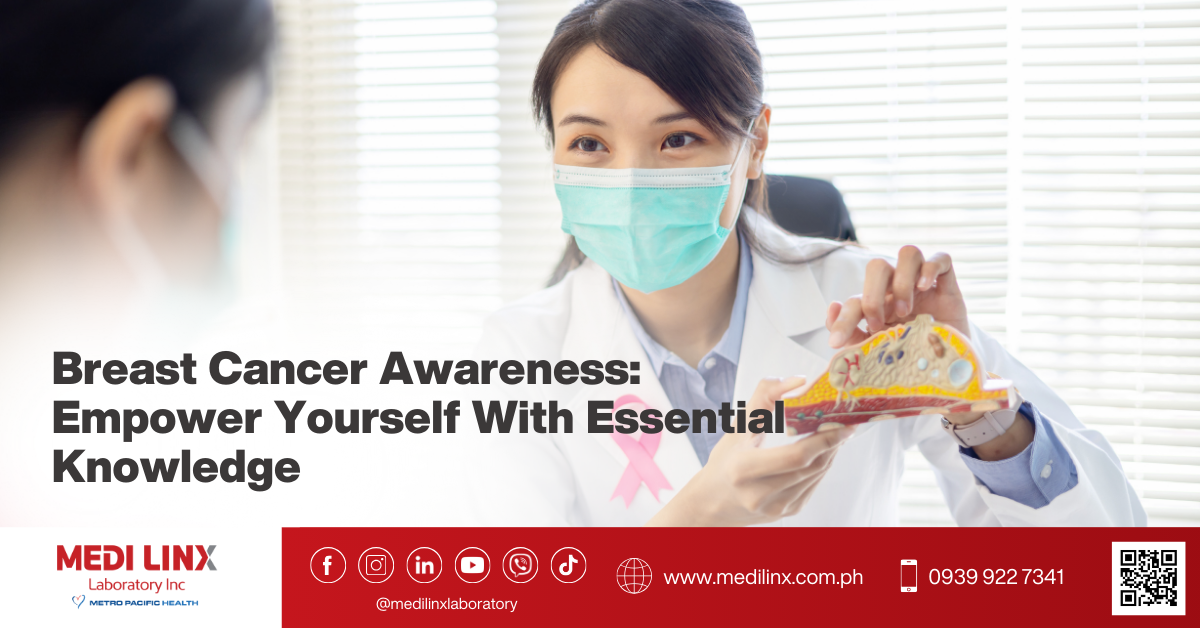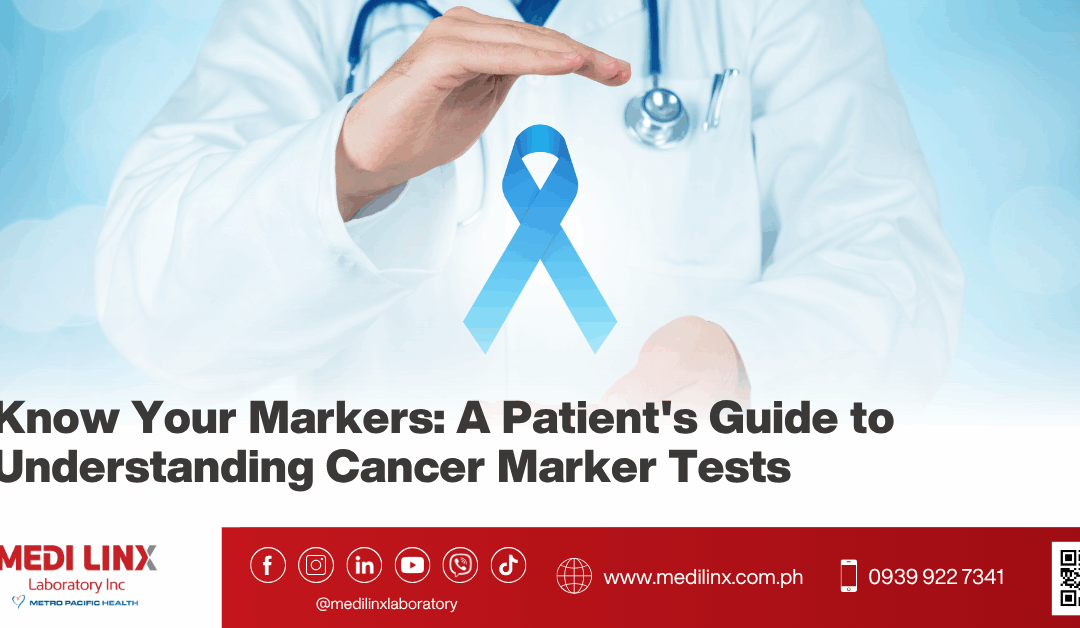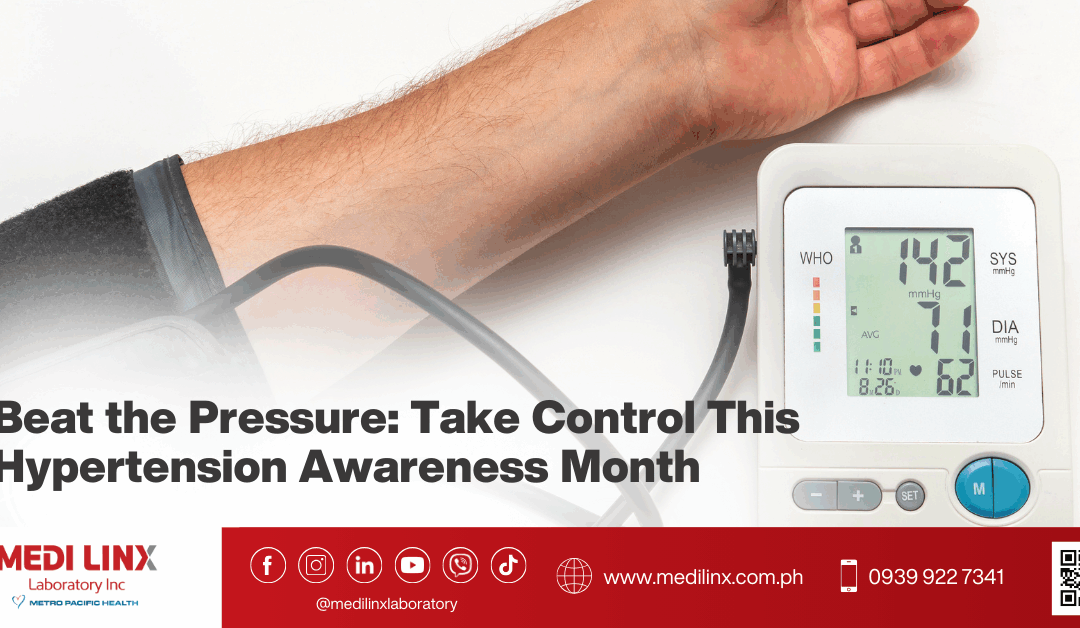This October, we celebrate Breast Cancer Awareness Month. We join with others in encouraging people to practice healthy lifestyles and combat breast cancer through prevention and treatment.
In this article, we will discuss why it’s essential to screen for breast cancer and the necessary details about the disease.
Importance of Breast Cancer Awareness
- Common Cancer: Breast cancer remains the most common cancer in women globally. In 2022, there were approximately 2.3 million new cases of breast cancer, accounting for nearly 12% of all new cancer diagnoses worldwide. As a result, screening for the disease with a combination of hospital visits and self-examination is imperative.
- Disease Development: The most common symptom associated with breast cancer is a lump, but the disease can develop even without symptoms. If there is a change within your breast or if it has a mass, talk to your doctor as soon as possible.
- Early Detection and Intervention: The mammogram test for breast cancer helps detect the disease early – especially when it is easier to treat and before it can cause symptoms. By having regular screenings for breast cancer, you can lower the risk of death from the disease because you can detect the disease early and receive treatment. Thus, you have a higher chance of recovery.
- Monitoring High-Risk Individuals: Many variables can put individuals at a higher risk for getting breast cancer, such as family having a history of the disease and being overweight, etc. Breast cancer screening helps monitor breast health closely.
- Encourages Better Health: Screenings raise awareness about breast cancer and inspire women and men to take a more proactive approach to their health.
Breast Cancer Causes
There is no exact cause for breast cancer, according to experts.
However, some variables put an individual at higher risk for breast cancer. These are:
- Family History: If your family has had breast cancer, then you also are at risk for getting the disease.
- Genetics: The disease develops because of genetic mutations. The most common mutations linked to breast cancer are the BRCA1 and BRCA2 genes.
- Sex: Women are at higher risk for breast cancer, more than men.
- Age: The risk for breast cancer is directly proportional to age. After the age of forty, breast cancer diagnosis rates rise; they are highest in women above 70. For those who have a higher risk of breast cancer, frequent screenings are encouraged.
- Obesity: Obesity puts people at higher risk for breast cancer.
- Childbirth at older age: Giving birth after the age of thirty is also a risk factor for getting breast cancer.
- Pregnancy: If you have never been pregnant, it qualifies as a risk factor for breast cancer. Becoming pregnant 1-2 times lowers the risk for breast cancer.
- Exposure to Radiation: If you have previously undergone radiation therapy — especially to your head, neck, or chest – then you have a risk of developing breast cancer.
Symptoms
Physical symptoms of breast cancer include:
- A change in the shape and size of the breast
- New mass or lump in the breast
- Blood or clear fluid that comes from the nipple
- Texture changes on the breast (dimpling, redness, pitting, scaling)
- Red skin on the breast or nipple area
- Formation of a complex, marble-sized spot under the skin
Even if the lump in the breast may not hurt, you should seek medical care. Most breast lumps are not cancer. Cancerous lumps have a higher chance of treatability when they are still small and have not affected lymph nodes nearby, such as the one under the arms.
Taking the Initiative This Breast Cancer Awareness Month
- Read about risk factors: Education is a good stepping stone for raising awareness. Research and discuss risk factors for the disease. If you have questions, consult a doctor. The more knowledge you have, the more you can share with your friends and family.
- Read and share survivor stories: Honor survivors and their experiences by reading about and sharing their stories on social media. For more personal interaction, contact organizations involved in breast cancer awareness, like Kasuso (Philippine Foundation For Breast Care Inc.) and ICanServe Foundation.
- Participate in Breast Cancer Awareness events: These events help spread awareness and money in the fight against breast cancer and are usually held by entities that provide resources and support for those with the disease. You can host, donate, volunteer, or participate in these events. Even small actions such as reposting about them on social media can contribute to the fight against the disease.
- Screen regularly for breast cancer: Regularly self-examine your breasts if there are any lumps or changes and have mammograms. Remember to remind your loved ones to have mammograms; early detection can save lives.
- Live a healthy lifestyle: Several factors can put an individual at even more risk for breast cancer, but some can be controlled, such as weight management and smoking. Some practices for a healthy lifestyle are the ff:
- Quitting smoking: Smoking is considered a risk variable for breast cancer – and lung cancer, too.
- Exercising regularly: Exercise aids in weight management, especially if your BMI is considered obese and overweight; the latter puts you at higher risk for the disease.
- Regular check-ups: Check your health by attending an annual executive check-up; this can help you have a better relationship with your doctor and stay updated about your health.
- Regular tests and health monitoring: During health center/clinic visits, you can take tests besides the mammogram to screen your current condition. This is crucial not only with breast cancer monitoring but also if you have other preexisting conditions, like kidney problems.
If you have kidney issues, it’s important to regularly undergo a creatinine test, urinalysis, and potassium test to monitor your kidney function. These tests provide critical information that helps assess your overall kidney health.
FAQs
Why is October called Breast Cancer Awareness Month?
October is Breast Cancer Month because the American Cancer Society began it in 1985 as a week-long celebration that later lasted a month.
What is the symbol for breast cancer awareness?
Breast cancer awareness uses the symbol of a folded pink ribbon.
What is the importance of breast cancer awareness?
Breast cancer awareness is important because:
- It is one of the most common cancers diagnosed in women.
- The disease can still develop even without manifesting physical symptoms.
- Early screening, detection, and treatment for breast cancer can save lives.
- Several risk factors contribute to the development of the disease. Through screening, people at high risk can monitor their health, make better choices, and prevent the disease from developing.
Get Your Breast Cancer Screening With Medi Linx Laboratory!
Breast cancer has several risk factors and is a common cancer that is diagnosed in women. Therefore, we should be vigilant and take action by living a healthy lifestyle and regular screening for the disease with the help of the following tests:
- Carcinoembryonic Antigen (CEA): This test measures the CEA, a protein with sugars cancerous cells produce. It helps evaluate the growth of breast cancer and other cancers in the body.
- Cancer Antigen (CA) 15-3: This test gauges and monitors response to treatments for breast cancer. It also monitors the amount of cancer antigen 15-3 (CA 15-3) in your blood.
- Estradiol: The amount of the hormone E2 in the blood is measured in this test. High levels of Estradiol are linked to breast cancer.
- Progesterone: This test measures the level of progesterone in your blood sample. Progesterone, notably, can cause breast tissue to grow faster than average and contributes to the growth and development of breast cancer tumors.
Doctors use these tests to diagnose and follow up on diseases, and they are also available at Medi Linx Laboratory.
Medi Linx Laboratory is a dedicated Laboratory in Quezon City that offers various laboratory packages and procedures. We pride ourselves on providing timely, accurate results and being dedicated to patient care. Book a schedule to screen for breast cancer via our Virtual Lab, or contact us at 0939-922734!




